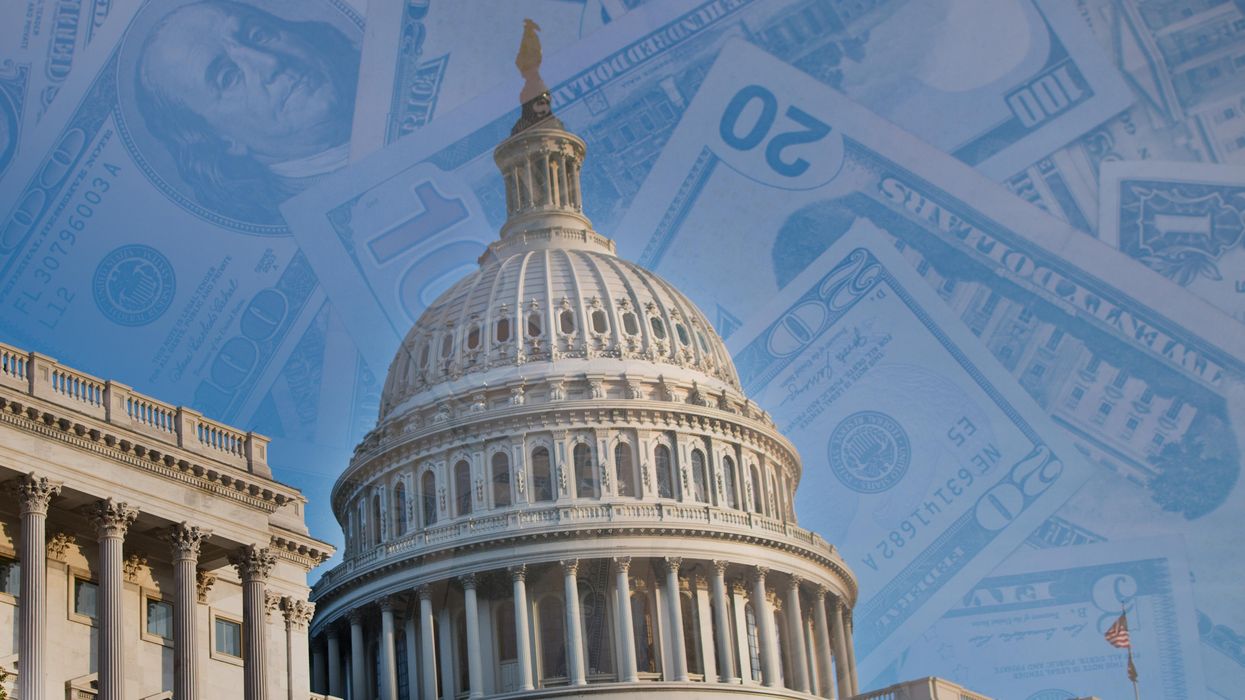The gusher of money that's steered American politics for so long has abruptly slowed this week. Two huge banks, a rasher of prominent companies and many lobbyists have all suspended campaign giving.
A few have done so across the board, spooked at how last week's insurrection at the Capitol has propelled democracy's distress to a new nadir. But most say they are closing their checkbooks only to those Republicans who countenanced the rebellion with their votes to overturn the presidential election.
It's way too soon to know how long this highly unusual form of punishment will last.
It may well prove to be a high-profile but only temporary and partial gesture, with publicly disclosed donations halted even as businesses and their K Street minions continue to use the plenty of secretive channels available to influence policy with their cash.
Less likely is that corporate America decides to confront the long-term risk of inflicting lasting financial damage on half the political power structure — especially since it's Republicans who will remain the more reliable ally once the incoming Biden administration starts pressing its agenda with the help of like-minded Democrats in total control of Congress.
There is also a chance that the mob invasion of the Capitol will emerge as the rationale for de-escalating a campaign finance arms race almost all companies now view as part of the price of doing business.
Executives have known for decades their donations are required before getting their voices heard in House and Senate offices of either party, a system under which they privately chafe and which has come to increasingly irk their investors. But having used their power to silence President Trump in his final days and punish his allies in Congress — in the name of preserving the rule-of-law system that permits them to profit — they may conclude they no longer need to spend nearly so much trying to influence elections and curry favor with the winners.
"We have to create some level of cost," Thomas Glocer, a board member of both the Morgan Stanley investment bank and the Merck pharmaceutical giant, told The Wall Street Journal. "Money is the key way."
Groups advocating for tighter campaign finance regulation, for now, are signaling they will focus on pressing companies to keep their promises — and amplify the efforts by demanding the return of money they have given Republicans who voted against the legitimate Electoral College results last week and thereby endorsed Trump's baseless allegations of election fraud.
The nearly two-thirds of House Republicans who did so — 139 of them — include Minority Leader Kevin McCarthy of California and Minority Whip Steve Scalise of Louisiana, two of the most prominent GOP fundraisers in the nation. The eight senators who did likewise include Rick Scott of Florida, who was just put in charge of candidate recruitment and fundraising for the party's bid to retake the Senate in the 2022 midterms.
Several prominent lobbying shops said their people would stop giving to Republicans who took Trump's side in the electoral vote challenge, which ended hours after the Capitol was sacked, at least five people died and dozens of police officers were injured.
Some also signaled they were no longer interested in having anyone from the outgoing administration spin through their revolving doors — in part after several prominent Democrats declared they would not take meetings with representatives of any K Street firm that hired Trump officials.
Among the companies that have announced a suspension of giving to Republicans who voted for against awarding all 306 electoral votes for Joe Biden: retail superpower Amazon, the Blue Cross Blue Shield Association medical insurance power, Midwest bank conglomerate Commerce Bancshares, chemical giant Dow, legacy hotel icon Marriott International along with its rival Airbnb, and the telecommunications behemoths Comcast, Verizon and AT&T.
But two of the nation's biggest banks said they were pausing donations to all Republicans and all Democrats — JPMorgan Chase for at least six months and Citigroup through the end of March.
Their two political action committees put a combined $1.6 million directly into the 2020 campaign, most of it to Republican congressional candidates, according to the Center for Responsive Politics. But that does not count millions more donated by their executives, either directly or through more opaque means such as gifts to politically active nonprofits and partisan campaign groups not connected to individual lawmakers — the same sorts of venues that companies could continue to use if they want to keep their campaign giving alive but in the dark.
Medical-device maker Boston Scientific, investment bank Goldman Sachs and Alphabet, the parent of Google, also said they had hit the pause button on all campaign donations.
Those moves seemed designed to prevent public criticism and avoid angering the Republicans who backed the baseless election fraud claims. But they stand to inflame the Democrats.
"Nothing more than a PR stunt –– and a bad one at that, since it's predicated upon the dangerous false equivalency that led us to this breaking point," declared Tiffany Muller, the head of the progressive campaign finance overhaul group End Citizens United.
Missouri-based Hallmark, the greeting card company, asked for its money back from a home-state senator, Republican Josh Hawley, who first assured that Trump's effort to reverse the election would be put to a vote.
In the past 15 years, two-fifths of S&P 500 companies have faced shareholder proposals to limit political spending or to improve disclosure, according to the Center for Political Accountability, a nonpartisan group that advocates for more open but ideally curtailed corporate political spending. It says nearly half the big companies now fully disclose or prohibit contributions to candidates, parties and political committees.
The developments came as the Las Vegas casino company run by Sheldon Adelson, who had come to personify the term "Republican mega donor" and had been Trump's most prominent billionaire backer, announced his death Tuesday at age 87.




















Trump & Hegseth gave Mark Kelly a huge 2028 gift